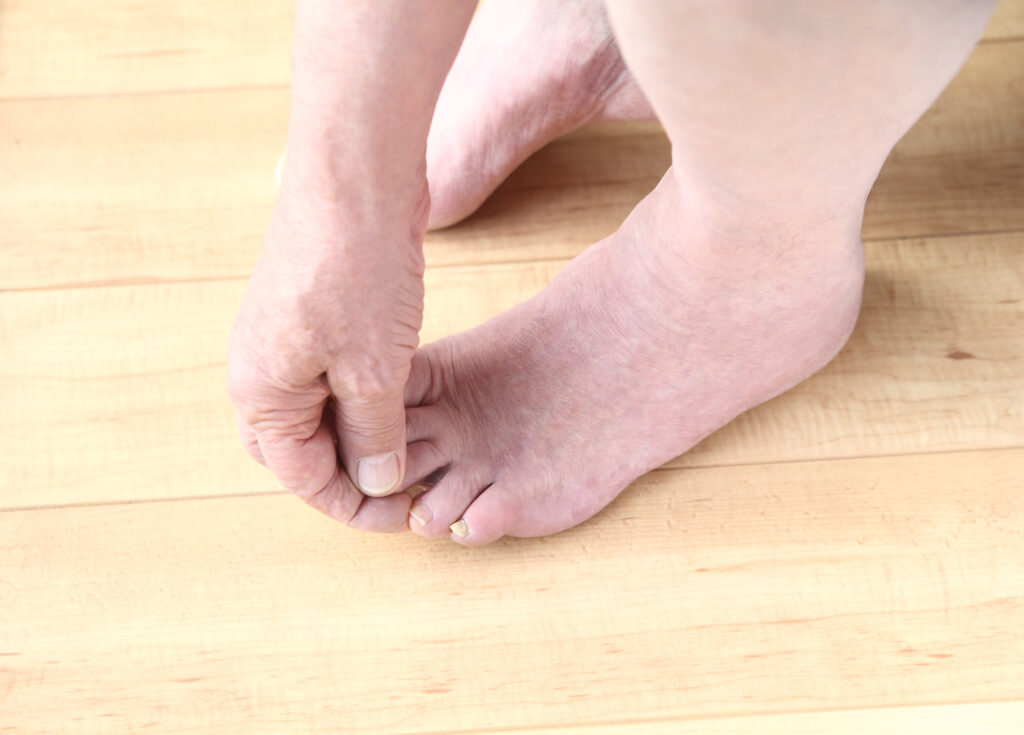Why Foot Care Is Essential For Diabetics

If you have diabetes, chances are you’ve heard you need to practice good foot care. Why is that? And, why should you keep checking your feet even if you’re not having any problems with them? Read on to find out:
Why Is Foot Care Important for Diabetics?
Diabetes increases how much sugar is in your blood. High levels of sugar, which can happen if you have uncontrolled diabetes, can damage the nerves in your feet causing the condition known as peripheral neuropathy. Nerve damage can reduce your ability to not only feel cold and heat, but also pain.
Combining nerve damage with poor circulation can increase your likelihood of infection and slow healing. If you have damaged nerves, you could lose your sense of feeling in your feet. You might not notice things like:
- A small cut when you walk across the lawn barefoot
- A blister created from ill-fitting shoes
- Ulcers
These small foot wounds won’t heal easily with slowed circulation as a result of uncontrolled diabetes, and if you don’t have them treated, it can quickly turn into a severe infection, and potentially an amputation in severe cases.
Other diabetic foot problems include:
- Fungal infections
- Dry, peeling, or cracked skin
- Calluses
- Corns
- Bunions
- Hammertoes
- Ingrown toenails
Risk Factors
Anybody with diabetes could develop nerve damage, but there are certain risk factors that make you more susceptible, including:
- Being overweight
- Hard to manage blood sugar levels
- High blood pressure
- High cholesterol
- Being older than 40
- Smoking
Nerve damage, as well as poor blood flow, which is another complication with diabetes, puts you at risk for the development of a foot ulcer (a wound or sore) that can become infected and not heal properly. If treatment doesn’t eliminate the infection, your foot, toe or even part of your leg might require amputation to keep the infection from spreading throughout your body and to save your life.
Checking your feet daily can help you detect any potential problems early so you can have them treated immediately. Early treatment will greatly reduce your risk of amputation.
How to Care For Your Feet as a Diabetic
It’s essential for you to practice daily foot care if you have diabetes. Individuals with diabetes need to take precautions with their feet to protect them from infection.
To avoid serious foot issues that could lead to you losing a foot, toe, or leg, follow these guidelines:
- Check your feet every day. Check for blisters, cuts, swelling, redness, or other nail and feet problems.
- Bathe your feet in warm water (not hot). Keep them clean by washing them everyday.
- Ensure you dry your feet thoroughly, especially in the spaces between your toes to help prevent infection.
- Keep your feet moisturized. Don’t moisturize between your toes as this could lead to a fungal infection.
- Cut your toenails carefully and not too short.
- Don’t smoke. Smoking restricts the flow of blood to your feet.
- Take care of your diabetes and maintain your levels of blood sugar.
As a diabetic, your doctor should give you a foot exam during each visit. If you have a history of foot problems, you should see a podiatrist for expert care. A podiatrist will provide you with foot care instructions and tips on how to take good care of your feet and perform a comprehensive foot exam at least once yearly.
If you have questions or concerns about your feet and require a podiatrist, contact Red Mountain Footcare in Mesa, AZ at (480) 725-2592 to schedule an appointment with Dr. Hardy.
